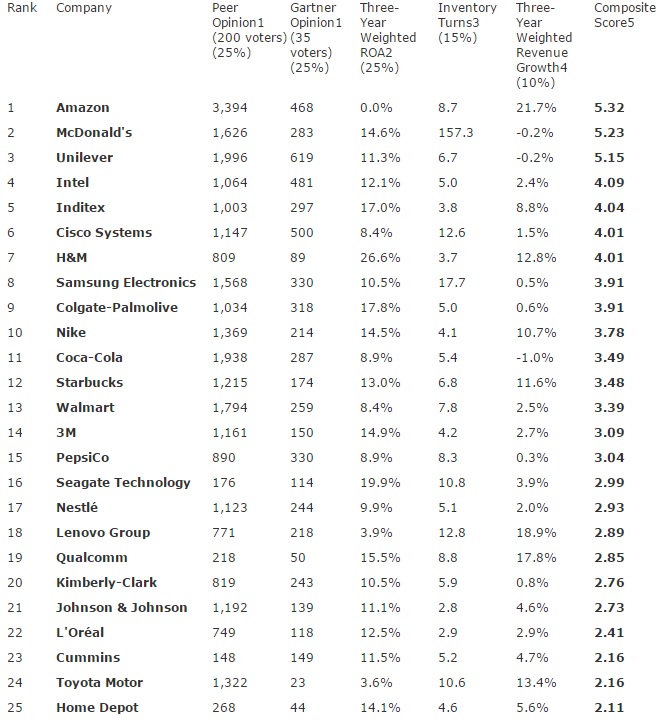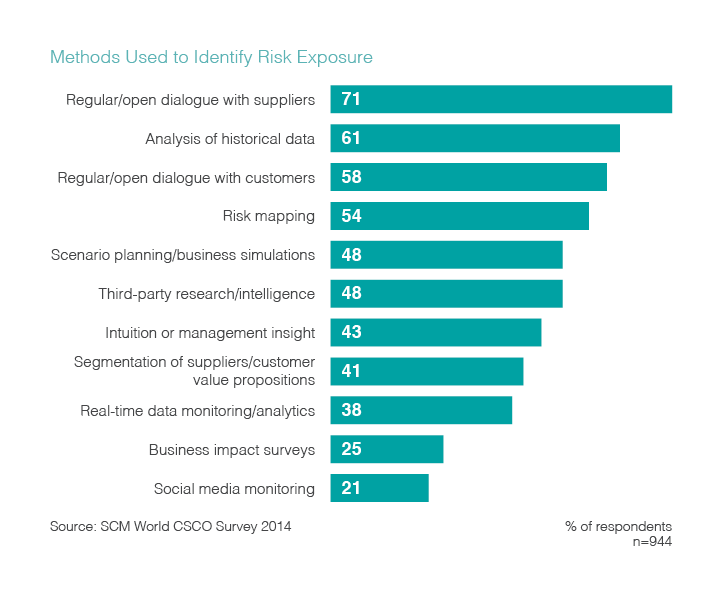
- Why Supply Chain Is Make-or-Break for Groupe Dynamite and Red Wing Shoes
The reality, as those in the trenches know far too well, is exceedingly more complex, with nuanced real-world variables that make certainty a near impossibility. Apparel and footwear companies including Red Wing Shoes and Groupe Dynamite shared their experiences at Logility’s Connections conference in San Diego, revealing how improving their supply chain operations has been essential to international expansion, catering to Millennial tastes and launching new product lines.
- 7 COMMON PUBLIC SPEAKING TIPS YOU SHOULD IGNORE
If you’re a comedian, great. But, says Parker, “telling jokes is an art that few can master. The chances are it will fall flat or lead to an embarrassing silence. This means you have blown the vital opportunity to make a good first impression and will struggle to regain the audience and your confidence. A personal anecdote will be a better opener in most cases.” Bonus: You’ve no doubt been telling your best anecdotes at dinner parties for years, so you’ve got a lot of practice with format and pacing.
- Black Monday – Supply Chain problems
Both Argos and Tesco Direct have admitted issues in being able to deliver orders on Black Monday on time. Reading through the article there is an important quote from Stuart Higgins, retail partner at LCP Consulting. “Retailers continue to pursue a faster and freer agenda which is simply placing too much pressure on their back end infrastructure and carrier partners to deliver.” Confirms what Temando found about many retailers’ back-end shipping processes not being totally automated.
http://www.it-director.com/blogs/the-holloway-angle/2015/12/black-monday-supply-chain-problems/
- OK, So You’re Not Google. You Can Still Compete With It for Top Talent
Working for a startup means that when you have a new idea, you start as small as you can, build smart, prove your concept, then scale it once you have evidence that it works. That continuous feedback loop is part of what draws people to startups in the first place. Engineering talent, for example, usually has a love of problem-solving. It’s why they entered the field in the first place.
Dealing with bureaucracy, paperwork and being required to justify budgets are a lot less interesting, and that’s a built-in advantage for most startups. If you want to test something, you go for it. Once you want it to go live and be in production, or grow on a bigger scale, then you present data and make your case to the team.
- Black Swans and the Risks in Supply Chains
Likewise, the ability to quickly identify a disruptive event and to respond immediately is critical to a company’s efforts to keep global operations running and to recover.
Over the last five years the use of sensors that detect threats ranging from tsunamis to suppliers in financial difficulty has become widespread.
A new crop of software applications are able to take such data, along with other information about worldwide events and translate that into recommended actions for a company. Applications can use tailored knowledge of supplier locations, bills of material, and the role certain products and customers play in supply chains to prioritize responses. Such systems are becoming essential to fast detection and efficient response.
- Why Office Singing May Be the Next Yoga
No…just…Hell No.Andrew McCrea, account executive at the Los Angeles-based public relations firm, PMBC Group, says office karaoke nights have helped the company’s employees bond more deeply. Karaoke nights were originally done when the company brought on new team members as a way to introduce the team to one another but they soon realized singing together helped develop a sense of unity year round. “You learn to be vulnerable around your colleagues and develop a sense of trust,” he says.







